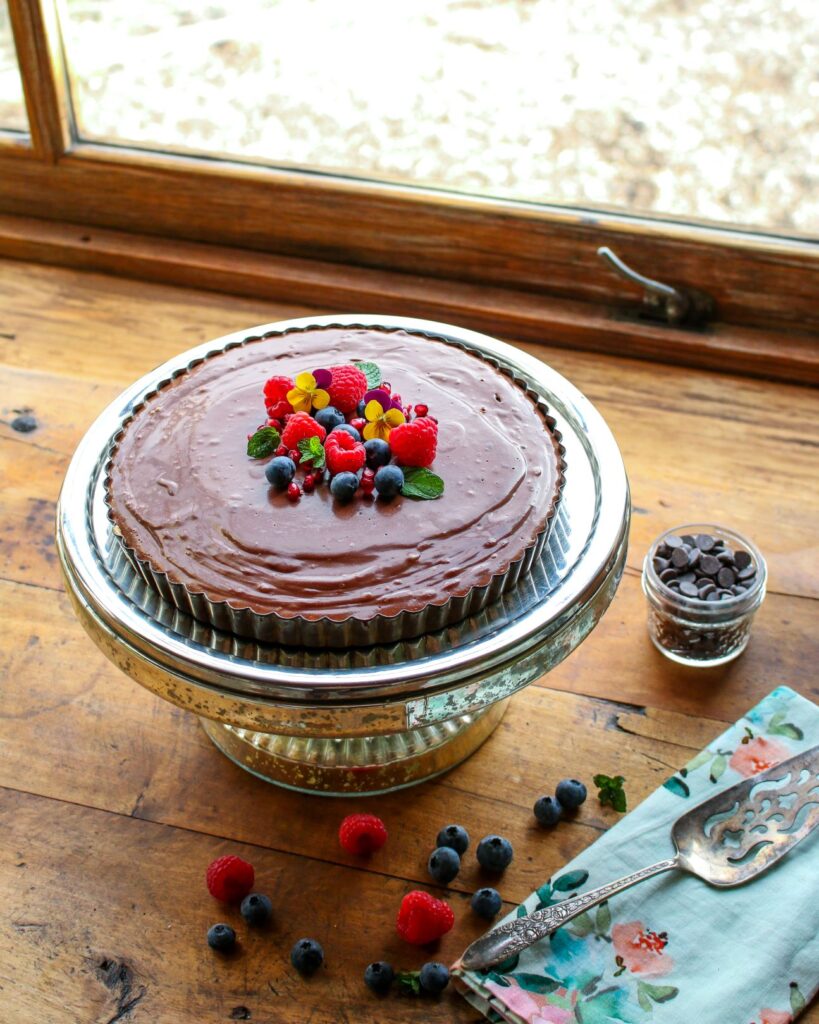Learn about the heath benefits of indulgent, delicious dark chocolate, and how to include chocolate in your diet the healthy way.
Scientists have answered people’s prayers by publishing beatific findings on chocolate’s health benefits. It seems that chocolate is so divine these days, it’s wearing a health halo! Food manufacturers are clamoring to add “healthy” chocolate to their food labels. Raw Chocolate Love bars have been selling with the mission statement, “chocolate as it should be: 100% pure raw, organic, and packed with antioxidants that nourish the mind, body and soul.” JOJO’s bars have claimed to be “guilt-free chocolate.” And Fav has said of its products “You’ve NEVER had chocolate so good…and so good for you!” Chocolate products are also getting whipped up with other functional ingredients. Good Cacao, which is made with omega-3 oils, has reported that it’s “one of the most healthy chocolate bars available.” In fact, dark chocolate, containing more flavanols than regular chocolate, is the largest and fastest growing segment of the more than $100 billion/year global chocolate market, according to Zion Market Research.
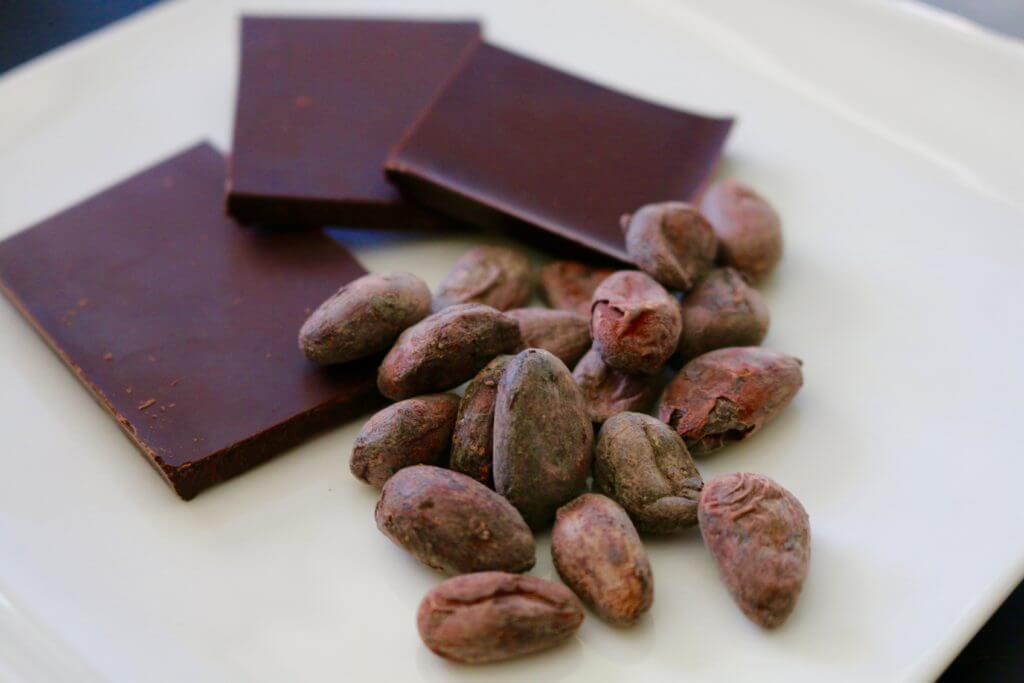
But are hot-selling chocolate products as saintly as manufacturers paint them to be? CocoaVia, a product from Mars Inc, a functional chocolate bar went under fire from the U.S. Food and Drug Administration for marketing campaigns which included “promotes a healthy heart” and “now you can have real chocolate pleasure with real heart health benefits”. FDA called the claims false and misleading because of the high levels of saturated fat in the products. CocoaVia products have been stamped with “supports brain and heart health” claims, too. Chocolate manufacturer Barry Callebaut’s made a 2019 petition to the FDA for the right to make a qualified health claim for heart benefits.
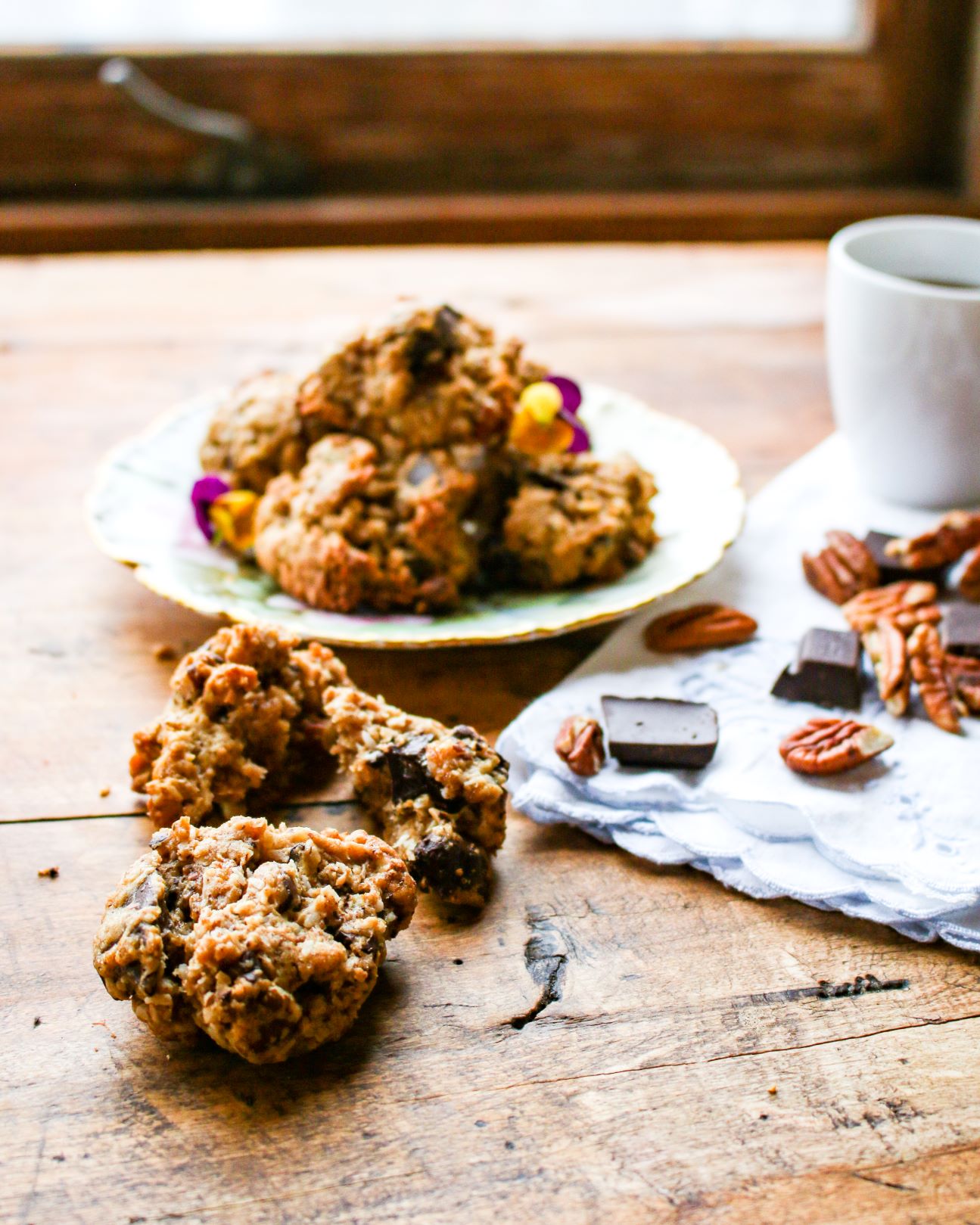
Unwrapping the Chocolate Science
Chocolate was passed down to us from the Mayans, who ground the beans of the Theobroma cacao tree to concoct a bitter beverage that eventually was used as a traditional medicine to treat a number of ailments ranging from heart problems to depression. Today’s positive buzz about chocolate and cocoa products is all about their polyphenols, beneficial compounds also found in many fruits, vegetables, tea, and wine. The types of polyphenols found in cocoa products are flavonoids, which include catechins, epicatechins, and procyanidins. Over 10 percent of the weight of cocoa powder is flavonoids, which are particularly potent antioxidants. One study found that cocoa had more phenolic phytochemicals and a higher antioxidant capacity than teas and red wine.1
Chocolate also contains plant sterols, B vitamins, magnesium, copper, and potassium. Thanks to Mars, which reportedly is behind the majority of the chocolate research, the results from studies on chocolate have yielded some promising results. It appears that chocolate may help prevent blood clots, lower blood pressure, improve insulin resistance, decrease inflammation, and reduce LDL cholesterol.
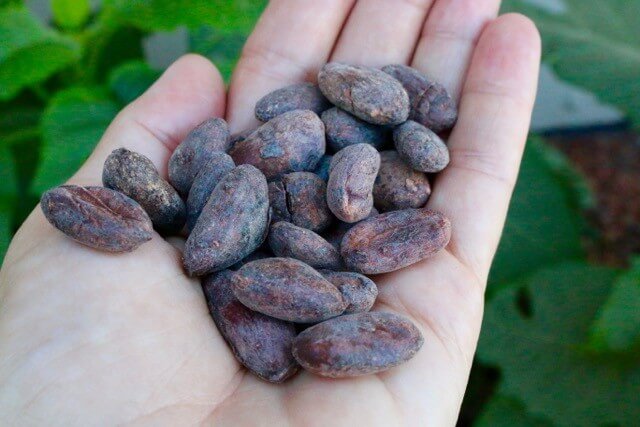
A review of studies in Antioxidants & Redox Signaling found that the anti-inflammatory effects of cocoa polyphenols benefit cardiovascular health, may help reduce risk for diabetes, may protect nerves from injury and inflammation, may have beneficial effects on satiety and reduce weight gain, and they may benefit cognitive function and mood.2 In a study published in a 2017 issue of Frontiers in Immunology, polyphenols in cocoa and dark chocolate exert antioxidant and anti-inflammatory activity that may lead to cardioprotective effects, and consumption of cocoa and dark chocolate by older people may benefit neurological function, including memory.3 Researchers from Loma Linda University reported in 2018 that consuming dark chocolate high in cacao reduces stress and inflammation, which can support brain and heart health.4 Experts are quick to point out that the benefits of eating chocolate will be better understood with long-term, randomized, clinical trials.
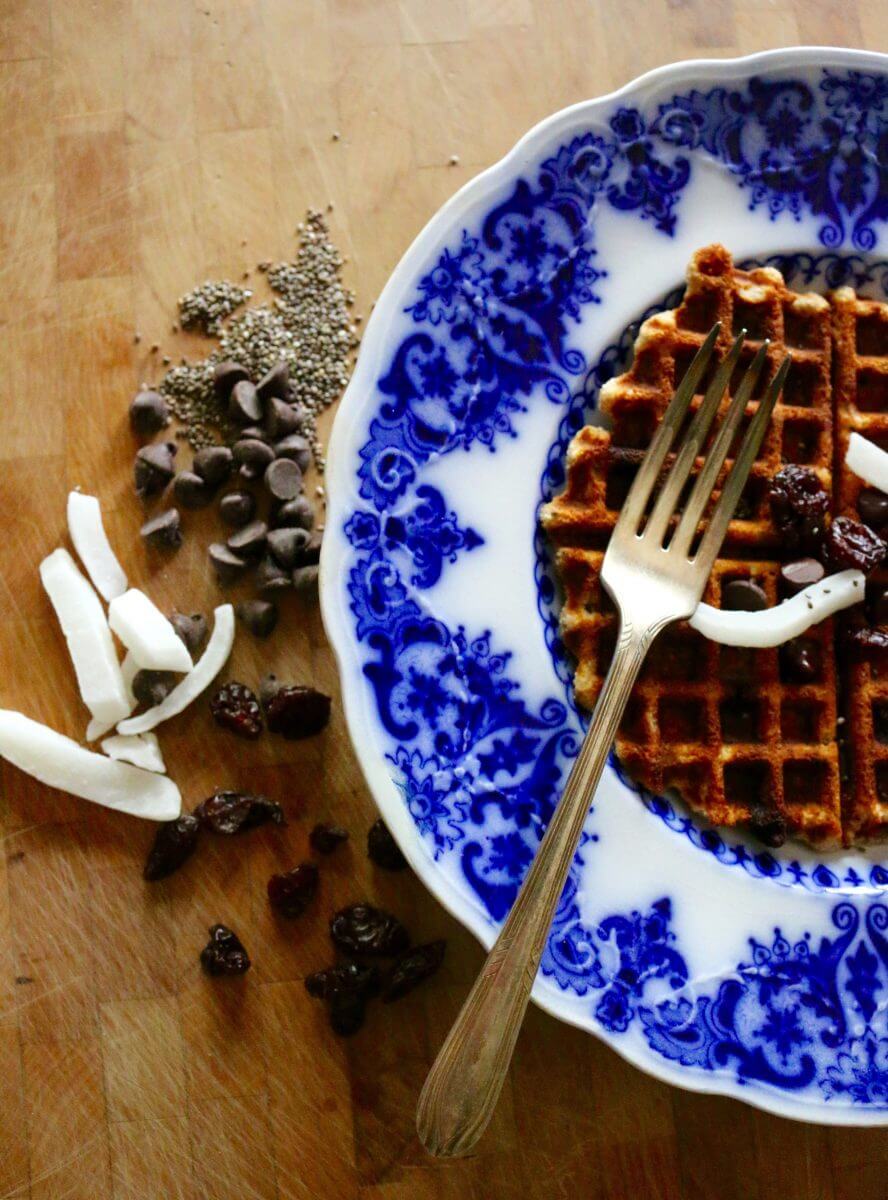
Getting Real
Though the emerging science on chocolate appears hopeful, the overall benefits of eating one of our favorite flavor ingredients may not be as easy to swallow as people might wish it to be. The benefits of chocolate and cocoa-containing products seem to be related to their polyphenol content, but today’s standard chocolate confections are typically a processed mix of chocolate liquor, cocoa butter, cocoa powder, sugar, emulsifiers, and milk that may minimize its potential polyphenol content.
The roasting and alkali treatments of cocoa powder can also reduce its flavonoid levels. Depending on harvesting and processing conditions, up to 90 percent of its flavonoids can be lost during processing. In finished products, the amount of cocoa can vary from 7-35 percent in milk chocolate to 30-80 percent in dark chocolate. Dark chocolate generally has twice the amount of polyphenols than does milk chocolate. White chocolate has none.
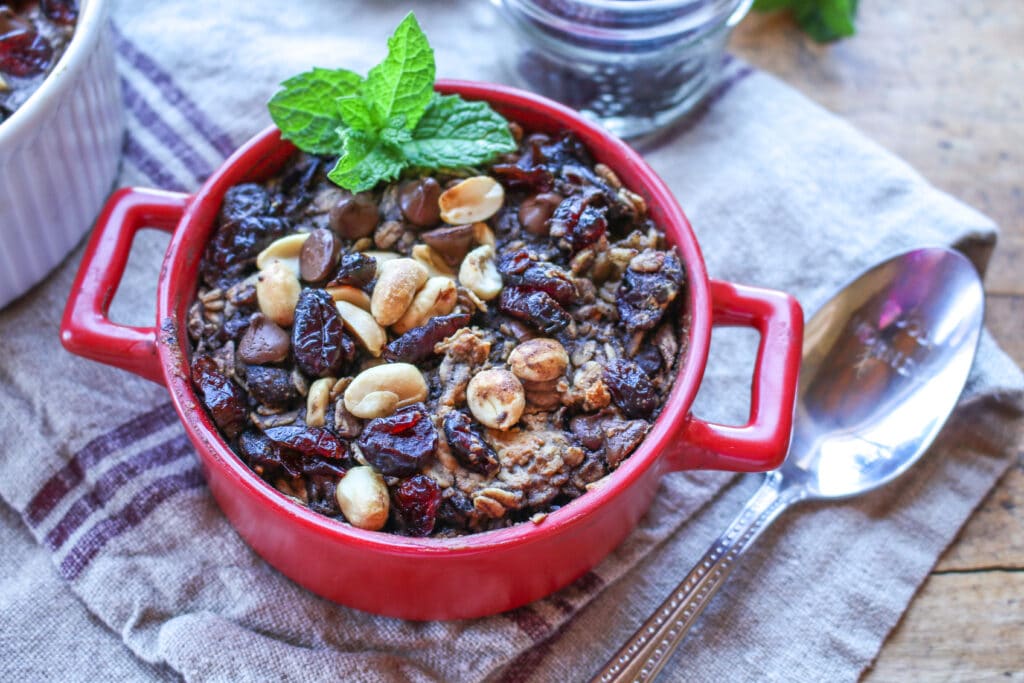
Let’s not forget about the ample supplies of fat, saturated fat, sugar, and calories that come along for the ride in every chocolate bar. At 135 to 150 calories per ounce, the polyphenol benefits of chocolate might be easily overshadowed by excess calorie intake and weight gain. A Hershey’s Special Dark Chocolate Bar contains 180 calories, 12 grams of fat, 7 grams of saturated fat, 21 grams of carbohydrates, and 18 grams of sugar in the suggested 36 gram portion (only 3 blocks).
New York Times best-selling author, Andrew Weil, MD, suggests that people may gain health benefits from indulging in an ounce of high-quality dark chocolate that contains at least 70 percent cocoa several times per week. But rather than perceiving dark chocolate as a “health food”, people should consider it a treat that offers enjoyment and satisfaction. With the announcement of a poll by the chocolate manufacturer, Cadbury, which revealed that 52% of women would prefer chocolate to sex, that shouldn’t be hard to do.
Check out some of my other favorite recipes and blogs featuring dark chocolate:
Chocolate Zucchini Power Muffins
Dark Chocolate Cherry Energy Mix
Easy Chocolate Chia Pudding with Strawberries
Dark Chocolate Pistachio Biscotti
Rhubarb Strawberry Tart with Dark Chocolate
References:
- Lee, K., Kim, Y., Lee, H., and Lee, C. 2003. Cocoa has more phenolic phytochemicals and a higher antioxidant capacity than teas and red wine. Journal of Agricultural and Food Chemistry 51: 7292-7295. https://www.ncbi.nlm.nih.gov/pubmed/14640573
- Katz, David L., et al. “Cocoa and Chocolate in Human Health and Disease.” Antioxidants & Redox Signaling, vol. 15, no. 10, 2011, pp. 2779–2811., doi:10.1089/ars.2010.3697. https://www.ncbi.nlm.nih.gov/pmc/articles/PMC4696435/
- Magrone, Thea, et al. “Cocoa and Dark Chocolate Polyphenols: From Biology to Clinical Applications.” Frontiers in Immunology, vol. 8, 2017, doi:10.3389/fimmu.2017.00677.https://www.ncbi.nlm.nih.gov/pmc/articles/PMC5465250/
- Loma Linda University Adventist Health Sciences Center. (2018, April 24). Dark chocolate consumption reduces stress and inflammation: Data represent first human trials examining the impact of dark chocolate consumption on cognition and other brain functions. ScienceDaily. Retrieved November 8, 2019 from www.sciencedaily.com/releases/2018/04/180424133628.htm
Image: BEST Vegan Chocolate Cream Pie, Sharon Palmer, MSFS, RDN


